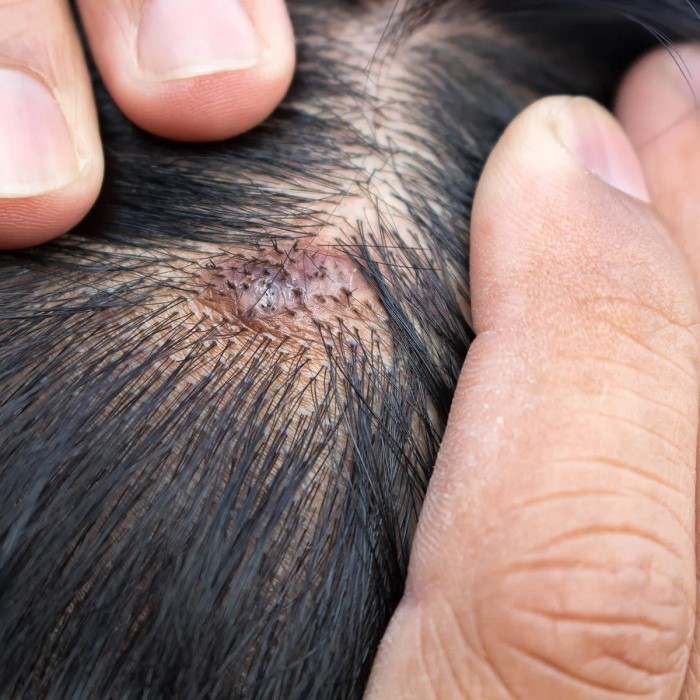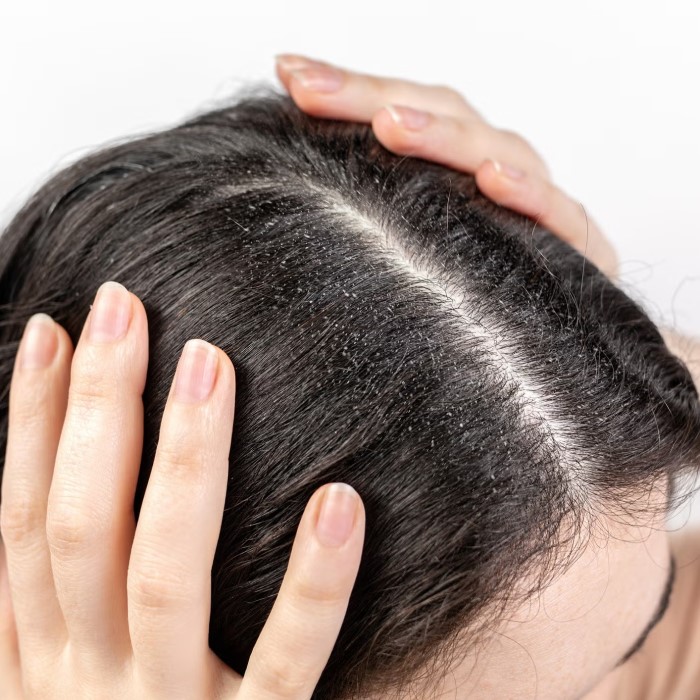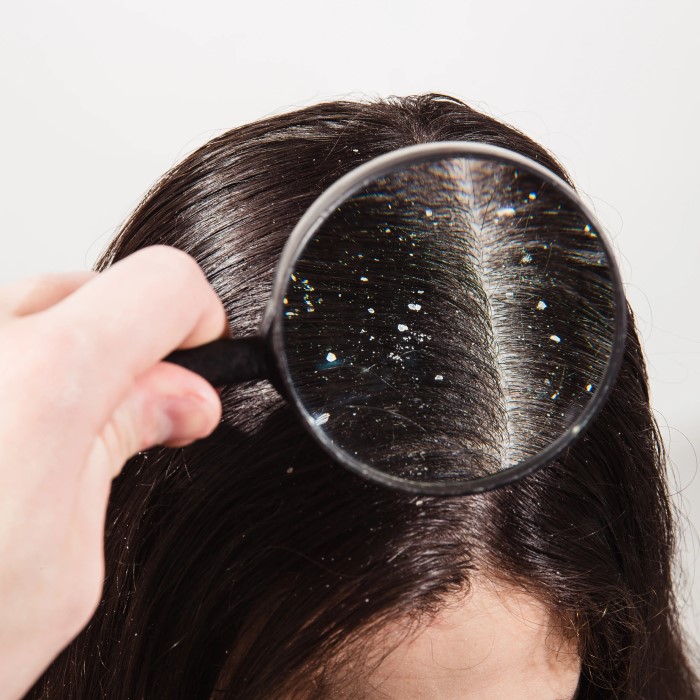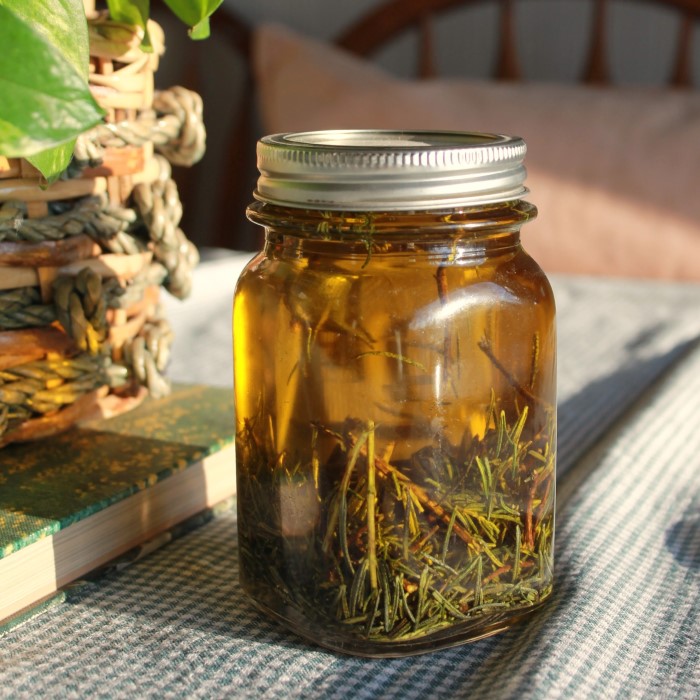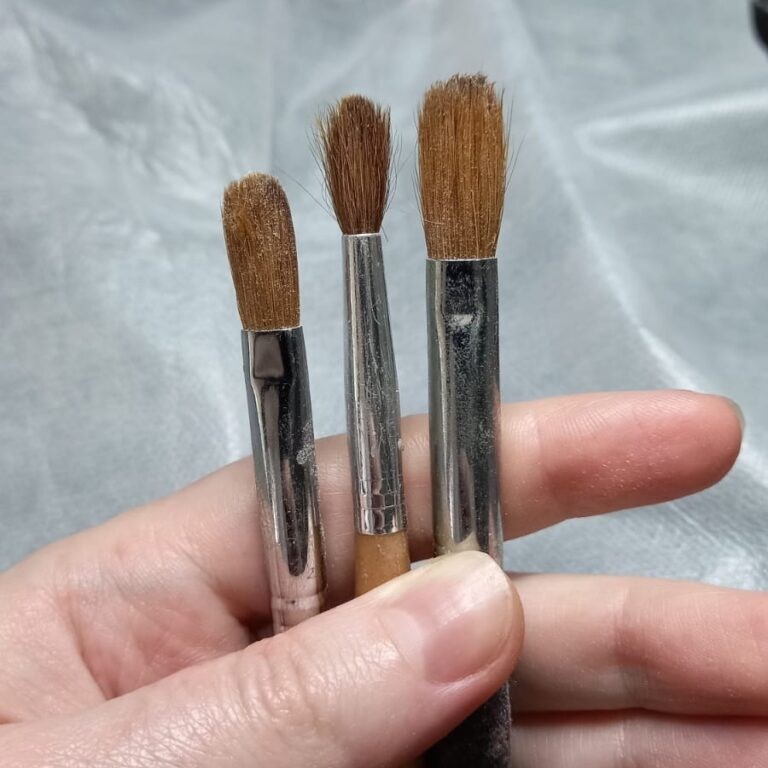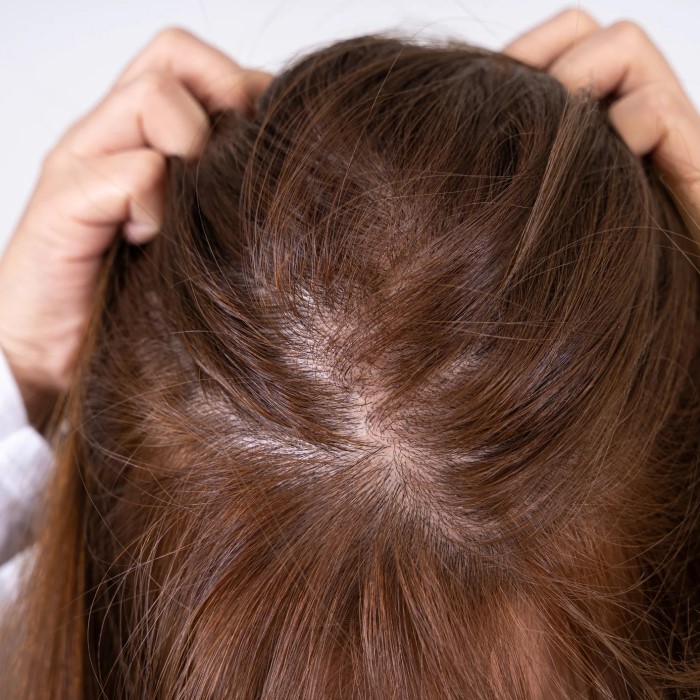
Does Dry Scalp Cause Hair Loss? Find Out How to Combat It!
Introduction: The Connection Between Dry Scalp and Hair Loss
When dealing with hair concerns, many people wonder, “Does dry scalp cause hair loss?” This question highlights an important relationship that needs to be understood for effective hair care. Dry scalp, a condition characterized by itching and flaking, can lead to discomfort and concern. However, understanding the connection between a dry scalp and hair health is crucial to determine the right course of action. In this article, we will explore how dry scalp affects hair loss, the underlying causes, and effective ways to combat this issue for healthier hair.
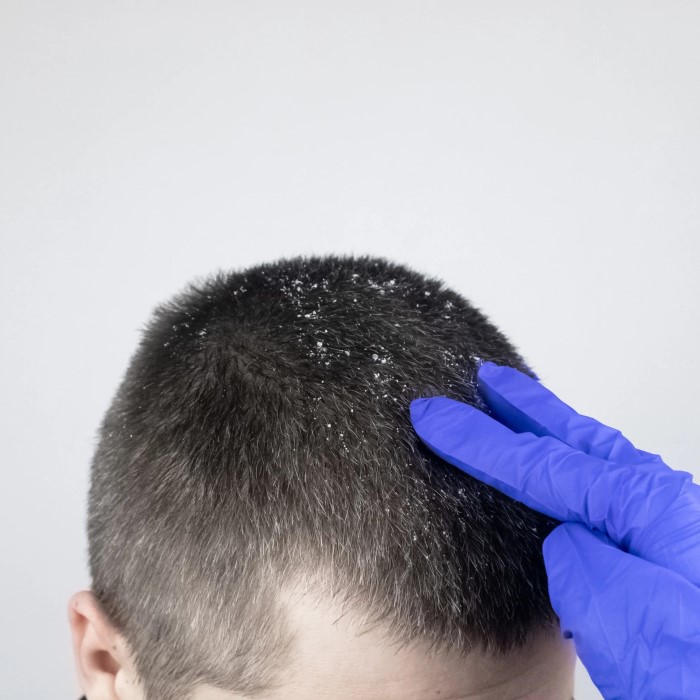
What is a Dry Scalp?
A dry scalp occurs when the skin on your head lacks enough moisture. It can make your scalp feel tight or itchy. This condition can lead to discomfort and irritation. A dry scalp is different from other scalp conditions like dandruff or psoriasis. However, it still requires attention and care to avoid worsening symptoms.
Common Symptoms of Dry Scalp
- Itching: Persistent itching is one of the most noticeable symptoms of a dry scalp. It can disrupt daily activities.
- Flakiness: Small, white flakes of skin may appear on your hair or shoulders.
- Tight or Stiff Feeling: The scalp may feel tight due to a lack of moisture.
- Redness or Irritation: Your scalp may appear red where it is inflamed, adding to the discomfort.
- Sensitivity: You may experience a heightened sensitivity to hair care products.
These symptoms can vary in intensity. Identifying them early can help in preventing further issues, including hair health problems.
Causes of Dry Scalp
- Weather Conditions: Cold or dry air during winter can strip moisture from the scalp.
- Harsh Hair Products: Shampoos or treatments with strong chemicals can dry out the scalp.
- Frequent Washing: Washing hair too often can remove the natural oils that keep the scalp hydrated.
- Dehydration: A lack of adequate water intake can lead to dryness in the scalp.
- Skin Conditions: Conditions like eczema or psoriasis can cause or worsen scalp dryness.
- Dietary Deficiencies: Lack of essential nutrients in your diet can result in a dry scalp.
Understanding these causes can help in managing and preventing dry scalp effectively. Regular care and hydration are key to maintaining scalp health.
How Dry Scalp Differs from Dandruff
Dry scalp and dandruff often get confused due to some overlapping symptoms. However, they are distinct conditions with different causes and treatments. Understanding the differences can help manage each condition effectively.
Key Differences Between Dry Scalp and Dandruff
- Cause of the Problem:Dry scalp occurs when the skin on your scalp lacks moisture. Dandruff, on the other hand, is caused by an overgrowth of yeast or excessive oil production. This yeast, scientifically called Malassezia, feeds on the oil in the scalp, leading to flaking and irritation.
- Appearance of Flakes:Dry scalp flakes are typically small, white, and fine. Dandruff flakes are larger, oily, and yellowish.
- Scalp Condition:Dry scalp is usually associated with tightness and sensitivity. Dandruff can lead to excess oil and redness.
- Symptoms Beyond Flaking:With a dry scalp, itching and discomfort stem from dehydration. Dandruff can cause inflammation due to oil buildup and yeast irritation.
Overlap of Symptoms Between the Two
There are some overlapping symptoms, making it tricky to identify each condition:
- Itching: Both dry scalp and dandruff cause itching. The underlying reasons, though, differ.
- Flakes: Flakes are common in both, but their texture and color vary.
- Seasonal Patterns: Both conditions might worsen in colder months due to dry air.
Identifying the root cause is key to correct treatment. Consulting a dermatologist can help pinpoint the exact issue. Addressing concerns like “Does dry scalp cause hair loss?” requires a deeper understanding, as treatment differs between the two conditions.
Can Dry Scalp Cause Hair Loss?
Dry scalp itself does not directly cause hair loss. However, it can lead to problems that contribute to hair thinning. Understanding how dry scalp affects hair health is crucial for addressing related issues.
Indirect Effects of Dry Scalp on Hair Health
- Irritation and Inflammation: Dry scalp can cause itching and redness. Constant scratching can damage the scalp, weakening hair roots.
- Reduced Scalp Quality: A dry scalp lacks moisture. This reduces its ability to support healthy hair growth.
- Poor Follicle Environment: Dry scalp increases sensitivity. Hair follicles may become stressed, reducing their ability to produce strong hair strands.
- Blocked Follicles: Flakiness can block hair follicles. Obstructed follicles hinder proper hair growth.
- Hair Breakage: Factors like inflammation can cause hair strands to break more easily, leading to thinning hair.
Factors That Contribute to Hair Loss in Dry Scalp Conditions
- Scratching Damage: Repeated scratching can harm the scalp, leading to weak hair roots.
- Loss of Natural Oils: Frequent washing strips natural oils, drying the scalp further and weakening hair quality.
- Weather Impacts: Cold or dry weather worsens scalp dryness, affecting hair hydration and overall strength.
- Nutritional Deficiencies: A lack of vitamins such as biotin or zinc can aggravate scalp dryness and hair loss.
- Underlying Conditions: Skin conditions like eczema or psoriasis intensify dryness and contribute to hair issues.
Dry scalp requires timely care to prevent worsening symptoms. Healthy scalp practices and treatments improve both scalp moisture and hair health. Addressing these factors can alleviate concerns about hair loss due to dry scalp.
The Relationship Between Scalp Health and Hair Growth
The health of your scalp directly affects the growth and quality of your hair. A well-nourished, hydrated scalp promotes strong and healthy hair strands. Conversely, an unhealthy scalp can hinder hair growth and lead to thinning.
Why a Healthy Scalp is Crucial for Hair Growth
- Nourishes Hair Follicles: A healthy scalp supplies essential nutrients to hair follicles for strong hair growth.
- Supports Hydration: Proper scalp hydration ensures hair strands remain flexible and less prone to breakage.
- Strengthens Hair Roots: A well-maintained scalp strengthens hair roots, reducing the chances of shedding.
- Promotes Follicle Activity: A balanced scalp environment encourages follicles to produce new hair consistently.
- Prevents Blockages: Clean, hydrated scalps avoid product buildup that can block follicles and hinder growth.
Maintaining scalp health creates a strong foundation for thick, vibrant hair. Regular care minimizes issues, ensuring optimal hair growth.
Impact of Scalp Irritation and Inflammation on Hair Follicles
- Weakened Follicles: Irritation can stress follicles, reducing their ability to produce hair efficiently.
- Hair Loss Risk: Constant inflammation damages scalp tissue, increasing the risk of hair thinning.
- Blocked Follicles: Inflammation might lead to flakes or debris that block hair follicle openings.
- Reduced Blood Circulation: Swelling from irritation can restrict blood flow, depriving follicles of nutrients.
- Slow Recovery: In an inflamed environment, follicles face difficulties recovering and creating new hair cells.
Addressing inflammation promptly prevents harm to hair follicles. Protective and soothing measures play a crucial role in minimizing lasting damage to your hair and scalp.
Prevention and Treatment for Dry Scalp
A dry scalp can be uncomfortable and irritating. Preventing and treating it requires consistent care and targeted actions. By addressing the root causes, you can restore moisture and maintain a healthy scalp.
Tips for Keeping the Scalp Hydrated
- Hydrate Regularly: Drink plenty of water daily to keep your scalp and body well-hydrated.
- Choose Mild Shampoos: Use shampoos with moisturizing ingredients like aloe vera or coconut oil.
- Limit Hair Washing: Overwashing strips natural oils; wash your hair 2-3 times a week.
- Apply Conditioner: Apply conditioner to moisturize and repair dry scalp after shampooing.
- Protect Against Weather: Wear hats or scarves in harsh weather to protect your scalp from dryness.
- Oil Treatments: Use natural oils like argan or jojoba oil to massage and nourish your scalp.
- Use a Humidifier: Add a humidifier to your home to combat dry air during colder months.
- Avoid Heat Styling: Reduce the use of blow dryers or straighteners to prevent scalp dehydration.
- Maintain a Balanced Diet: Include foods rich in omega-3, zinc, and vitamins A and E.
- Avoid Harsh Chemicals: Stay away from products with sulfates, parabens, or alcohol.
Small lifestyle changes can make a big difference. Consistent care ensures long-term hydration and comfort.
Recommended Products for Treating Dry Scalp
- Moisturizing Shampoos: Look for shampoos with ingredients like tea tree oil or glycerin.
- Hydrating Conditioners: Opt for conditioners with nourishing agents like shea butter or avocado oil.
- Scalp Oils: Use therapeutic oils like almond or castor oil to regain scalp moisture.
- Anti-Itch Sprays: Calm irritation and itching with sprays that contain menthol or chamomile.
- Natural Masks: Use DIY masks made of yogurt, honey, or aloe vera for scalp rejuvenation.
- Exfoliating Scrubs: Use gentle scrubs to remove flakes and promote healthy skin regeneration.
- Serums: Try hydrating serums designed for sensitive and dry scalps.
- Moisture-Rich Treatments: Explore leave-in treatments that keep your scalp hydrated throughout the day.
Test products carefully and choose those that suit your scalp’s needs. Consistent use can drastically improve dryness and prevent further issues. Maintaining a hydrated and healthy scalp supports overall hair health, preventing hair-related concerns in the future.
Addressing Hair Loss Caused by a Dry Scalp
Managing hair loss caused by a dry scalp requires proper care and timely intervention. Identifying and addressing the underlying reasons is essential for effective treatment. A targeted approach enhances scalp health and promotes hair regrowth.
Treatments to Restore Hair Growth
- Moisturize the Scalp:
- Use hydrating scalp treatments to replenish lost moisture.
- Apply natural oils like coconut, argan, or jojoba oil regularly.
- Utilize Hair Masks:
- Apply DIY masks with aloe vera, yogurt, or honey to nourish your scalp.
- Use avocado-based masks for deep hydration.
- Switch to Mild Products:
- Use shampoos and conditioners specifically designed for sensitive or dry scalps.
- Avoid products with harsh chemicals like sulfates or parabens.
- Scalp Massages:
- Massage your scalp with gentle, circular motions to improve blood circulation.
- Use essential oils like rosemary or peppermint during massages for added benefits.
- Improve Nutrition:
- Eat foods rich in omega-3s, biotin, zinc, and vitamins A, C, and E.
- Stay hydrated to support overall scalp health.
- Minimize Styling Damage:
- Avoid overusing heat styling tools like blow dryers and straighteners.
- Protect your hair and scalp from direct sunlight and harsh weather.
- Exfoliate the Scalp:
- Use gentle scalp scrubs to remove excess flakes and unblock follicles.
- Ensure regular but non-abrasive exfoliation for healthy skin regeneration.
When to Consult a Dermatologist
- Severe Hair Loss:
- Seek medical help if hair loss continues despite using treatments.
- A dermatologist can provide solutions tailored to your condition.
- Persistent Dryness:
- If dryness doesn’t improve with regular care, consult an expert.
- Skin conditions like psoriasis might require specialized treatment.
- Signs of Inflammation:
- Redness, swelling, or soreness may indicate underlying issues.
- Early medical advice prevents complications.
- Itching and Discomfort:
- Persistent itching might need professional evaluation to rule out other conditions.
- Prescription Treatments:
- A dermatologist can prescribe medications like anti-fungal shampoos or topical creams.
- These products help address severe scalp issues effectively.
Proper care and timely intervention can control dry scalp and hair loss. Consulting a dermatologist ensures accurate treatment and restores scalp health efficiently.
Natural Remedies for Dry Scalp and Hair Loss
Dry scalp and hair loss can be effectively managed using natural remedies. These remedies focus on improving scalp moisture and promoting healthy hair growth. Combining targeted care with lifestyle changes ensures a healthier scalp and stronger hair.
Essential Oils and Home Remedies
- Coconut Oil: Apply warm coconut oil to your scalp. It hydrates and reduces dryness effectively.
- Argan Oil: Massage argan oil into your scalp. It nourishes hair follicles and promotes growth.
- Tea Tree Oil: Mix tea tree oil with carrier oils. It helps in reducing flakes and fighting irritation.
- Aloe Vera Gel: Apply pure aloe vera gel directly to your scalp. It soothes and hydrates irritated skin.
- Honey Masks: Combine honey with yogurt for a DIY mask. It adds moisture and nourishes your scalp.
- Apple Cider Vinegar: Dilute and rinse with apple cider vinegar. It helps balance scalp pH and remove buildup.
- Olive Oil: Massage olive oil into your scalp. It protects the skin and promotes healthy hair.
- Rosemary Oil: Use rosemary oil to stimulate hair follicles. It improves blood circulation for better growth.
Regular application of these remedies improves scalp health while minimizing hair loss caused by dryness.
Dietary Changes for Scalp and Hair Health
- Omega-3 Fatty Acids: Include fatty fish, walnuts, and flaxseeds for better scalp hydration.
- Biotin-Rich Foods: Eat eggs, nuts, and whole grains to strengthen hair and prevent thinning.
- Zinc Sources: Add spinach, pumpkin seeds, and beans to reduce dryness and hair shedding.
- Vitamin A Foods: Focus on carrots, sweet potatoes, and leafy greens to promote oil production.
- Vitamin E: Eat almonds and sunflower seeds to protect your scalp from dryness and inflammation.
- Iron-Rich Foods: Include red meat, lentils, and spinach for strong hair roots and improved hair growth.
- Hydration: Drink plenty of water daily. It ensures moisture retention in both scalp and hair.
- Avoid Excessive Sugar: Limit sugary foods, as they can trigger inflammation and worsen scalp dryness.
A balanced diet alongside natural remedies strengthens the scalp and supports healthy, thick hair.
Myths and Misconceptions About Dry Scalp and Hair Loss
Misunderstandings about dry scalp and hair loss can lead to ineffective treatments. It’s vital to differentiate factual information from myths.
Common Misunderstandings Regarding Dry Scalp
- Dry scalp always causes hair loss: This is not true. A dry scalp alone doesn’t directly cause hair loss. Problems arise when scratching damages hair follicles or flakiness blocks growth.
- Dandruff and dry scalp are the same: Dandruff results from yeast or excess oil, while dry scalp is lack of moisture.
- Oily scalp can’t be dry: This is incorrect. A scalp can be oily and flaky when oil builds up over dry skin.
- Dry scalp is only caused by weather: While cold weather can trigger it, dehydration, diet, and harsh products are also factors.
- More washing solves dry scalp: Washing too often removes essential oils, worsening dryness and sensitivity.
- Dry scalp is irreversible: With proper care, it can be treated and managed effectively.
Separating Facts from Myths About Hair Loss
- Hair loss is always permanent: Hair loss from dry scalp can be temporary if the underlying issue is treated promptly.
- Oil treatments are enough to stop hair loss: Though oils help hydrate, other factors like diet and hydration play key roles.
- Dry scalp is rare in tropical areas: While humidity helps reduce dryness, factors like hydration and products also matter.
- Scratching doesn’t affect hair health: Frequent scratching damages hair roots and can lead to thinning or loss.
- All hair loss is genetic: Environmental factors and scalp health significantly contribute to hair shedding.
Understanding these myths helps in taking proper care of a dry scalp and addressing related hair loss effectively. Always approach solutions with facts and consult a professional when needed.
Conclusion: Healthy Scalp, Healthy Hair
In conclusion, while dry scalp alone does not directly cause hair loss, it creates an environment that can promote hair shedding and hinder growth. Understanding the key factors related to dry scalp is essential for effective prevention and treatment. Remedies and lifestyle offerings, combined with proper nutrition, can significantly improve scalp health.
By addressing dry scalp issues, you can maintain a healthier scalp and, in turn, support its role in fostering hair growth. So, when you hear the question, “Does dry scalp cause hair loss?” remember that taking proactive steps towards scalp care is crucial for achieving your hair goals. And with effective strategies in place, you can combat dryness and promote vibrant, healthy hair!
